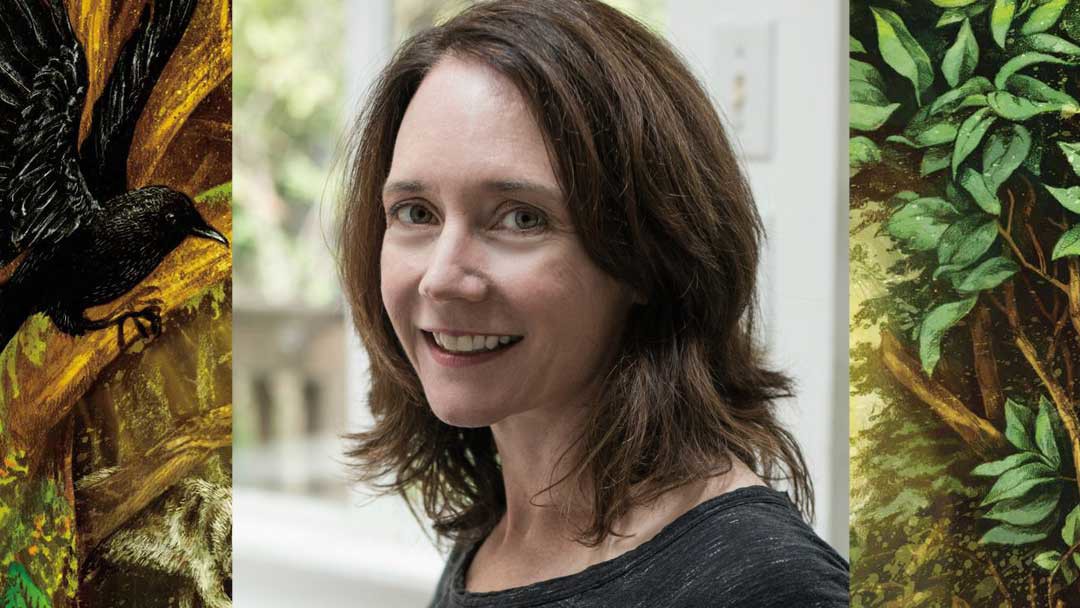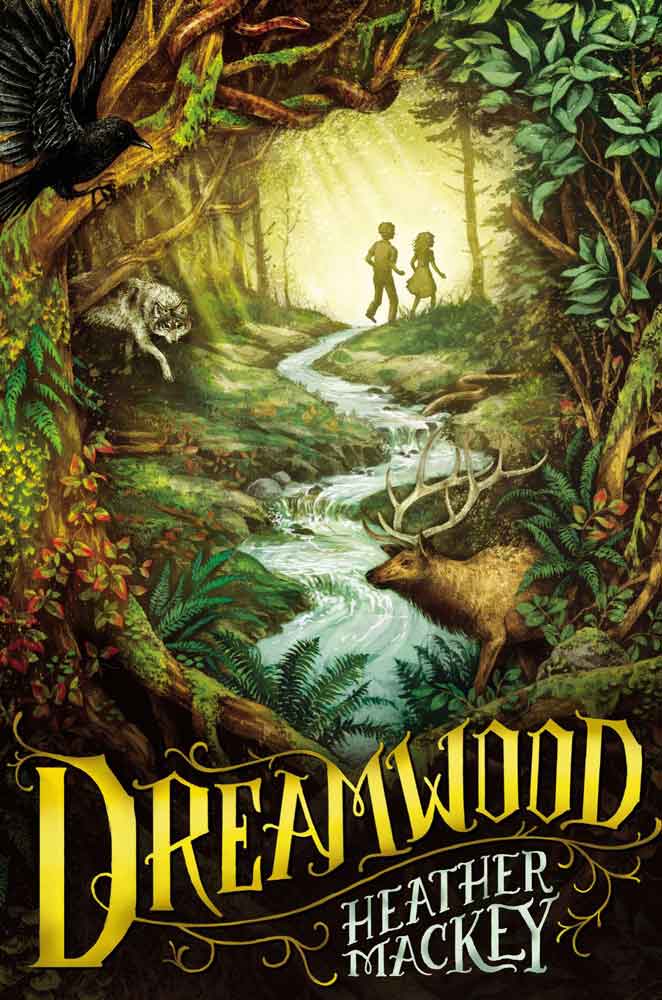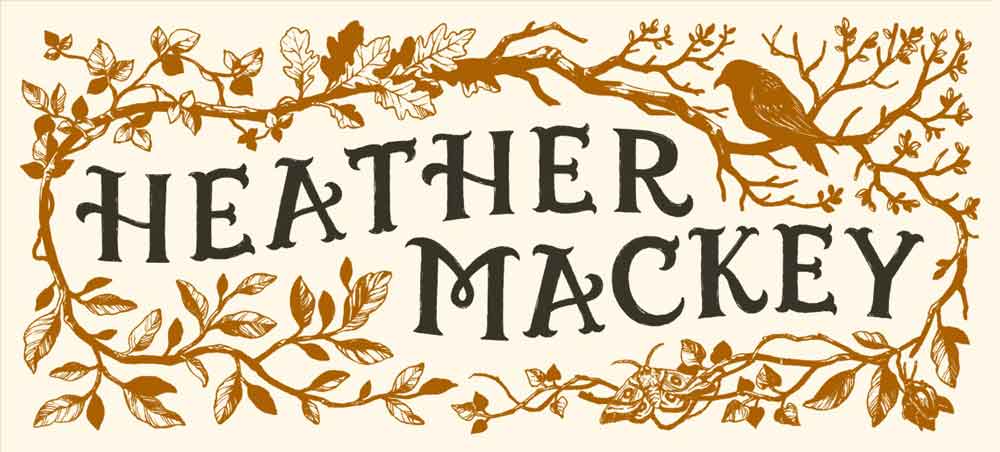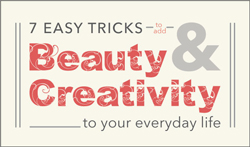My brilliant writer friend, Heather Mackey, published her first book, Dreamwood, last year. In addition to having one of the most beautiful covers I’ve ever seen (check it out below!), Dreamwood is smart, powerful and gorgeously written. Don’t be fooled by the “Young Adult” classification; this is a sophisticated story that will captivate adults as well as older kids. Heather has created a strange, spooky and magical world inhabited by strong characters winding their way through a unique and fascinating plot. I’m thrilled that she is already under contract for another book. Congratulations, Heather!
This interview is the second in my series, How Creativity Works.
What motivates you to sit down and begin work each day? Do you have a ritual/process to ease into creative work?
I’m really motivated to get to work (well, my creative work, that is), and partly that’s because I have a day job. I’m not going to say it sucks, rather … it provides a useful contrast that makes me eager to escape into my imagination.
By now, I’ve got a world-class “easing-in” process. I have a great chair that makes me feel like a starfleet captain. I eat a square (or more) of dark chocolate and knowing that I get to eat chocolate makes me pretty gung-ho. I have a few particular tracks of music I listen to. They’re very specific. When I find a new piece of music I can work to I get pretty excited. I just discovered “Open” by The Necks. It’s 68 minutes long. Thank you, The Necks!
But even with all my tricks, I can be a terrible procrastinator. And now that my book is out, I feel like I should be building my presence on social media. Really, the social/networking side of my brain and the creative side do not mix. I find the key thing is making a plan for my time and being really intentional.
Do you work steadily, day after day or does your creative work happen in bursts and pauses?
For me writing a novel feels like trying to levitate bricks with my mind. I’ve got to keep focused or they all fall down. It’s definitely easier for me to work steadily, even if I have crappy days, because then I get the benefit of momentum. And eventually I’ll reach a delicious state where I’m just so deep inside the book the real world seems less real in comparison.
That said, I have had the experience of pushing too hard, staying up too late when I’m clearly dry but I’m just masochistically soldiering on. Breaks are good. I used to be afraid of them because I thought they meant I was lazy. Now I realize breaks are just times when subconscious work happens.
(Dreamwood by Heather Mackey)
What do you do when you are stuck?
I’ll usually try to go for a walk or take a run. Doing something physical helps so much (though strangely housework never seems to do the trick). If I’m really stuck I try to visualize myself finding the answer—usually right before I go to sleep. I just wrote a blog post about imagining and naming a part of my subconscious who I can boss around and tell, “hey I’m stuck, go find me what I need.” The added benefit of this is that now it’s her problem!
My goofiest remedy is telling myself that in an alternate universe I’ve already figured it out, so I don’t need to worry. Amazingly this has helped.
I guess what all these tactics have in common is that they try to release or deflect the stress of being stuck. Being stuck is like having insomnia. Whatever you do don’t look at the clock and freak out about how late it is.
Do you consider your work, the process of creating, to be “fun”? Should it be?
I think Dorothy Parker said, “I hate writing, I love having written.” Sometimes, though, you just feel ecstatic. But no matter the ups and downs it is still fun on some level. Even when I’m really struggling I still love my story. Unrelenting misery would be a sign to get out.
What is the most satisfying point in your process of creativity for you?
The most exciting moment is when I have something I think can be a story and I’ve written some random pieces—a moment, a scene, some dialogue—that I feel point their way to something interesting. Then the hard work begins.
I recently read the novel Euphoria by Lily King—a totally amazing book. The central character is modeled on anthropologist Margaret Mead, and there’s a point when the character describes the favorite part of her work as that brief moment of euphoria, about two months in, when “everything feels reachable, comprehensible, before the full scope of the work ahead sets in.” (I’m actually quoting from an interview with Lily King). I think that’s a great way of describing it.
Check out more of Heather’s writing and keep up with news of her next book at heathermackey.com.




 I create burned wood engravings that combine my love of the textures and patterns found in nature with a deep interest in the unconscious world of dreams, symbols and mythic folklore.
I create burned wood engravings that combine my love of the textures and patterns found in nature with a deep interest in the unconscious world of dreams, symbols and mythic folklore. 
I read Dreamworld and loved it. As I writer (who is currently procrastinating on edits that are due in 1.5 weeks to my publisher) goofing around on social media is my biggest problem. I think socializing with other authors on my group blog/publishing groups etc…on Twitter and Facebook is “working” but it’s really not. Working on my current book is working. That being said, back to work and thanks for the great read (the blog and the book!)
Thanks for the comment, Ellyn! There are so many distractions around, especially with constant access to the internet. Just curious…have you ever tried using one of those programs that locks down your internet for a pre-determined amount of time? I have heard from various writer friends that they are helpful.
Hi Amy, this interview is very helpful , Heather’s strategy is imaginative . Definitely will use the tactics for procrastination thanks
Thank you, Maggie!